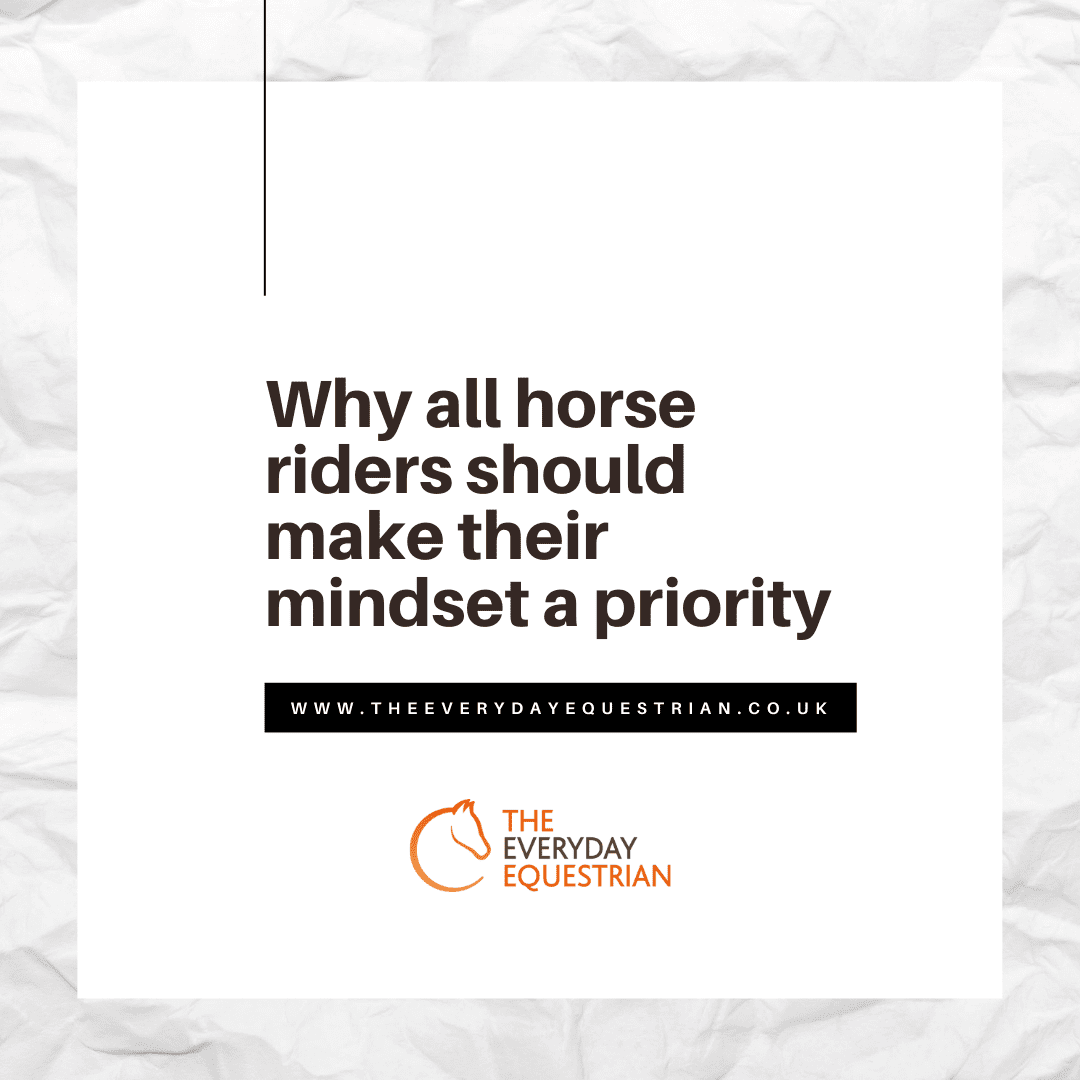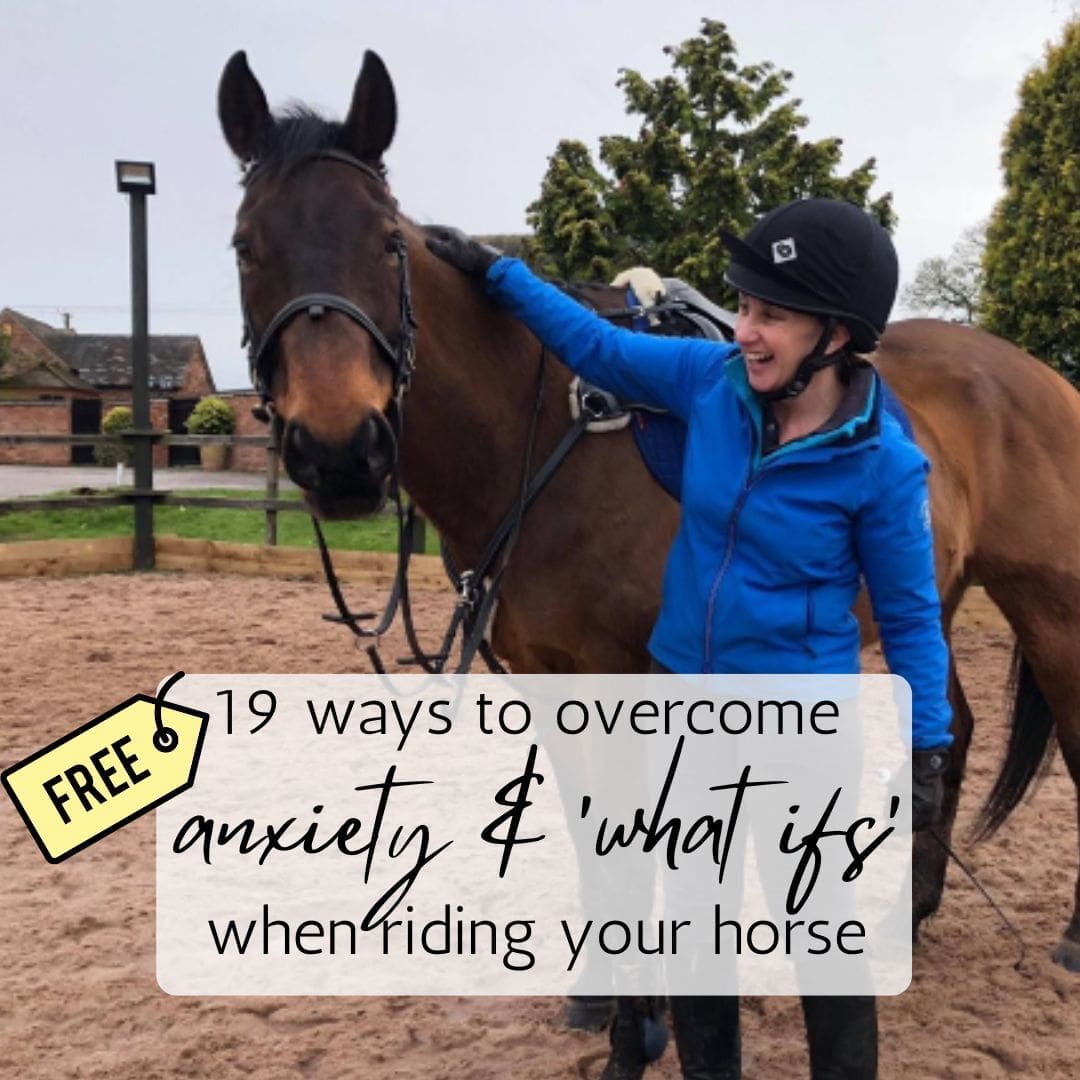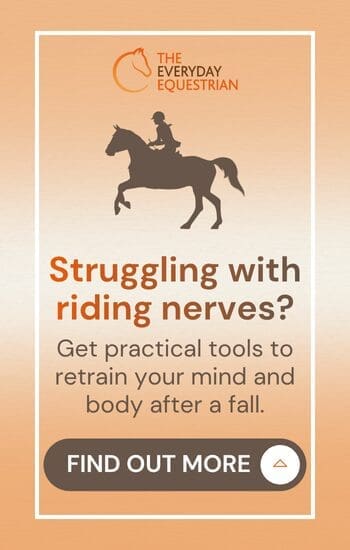We all see and interpret our world through our own specific lens. This is our mindset; the assumptions, expectations and beliefs we hold consciously and unconsciously about ourselves, our horses and the world around us. Our mindset plays a huge role in how we think, feel and experience life. When we understand our mindset, we’re able to adapt, adjust and shift those aspects of our mindset which are not helping us to be resilient, enabled and positive. By working on our mindset, we can improve our physical and mental health, decrease stress levels, and manage the inevitable ups and downs of owning and riding horses more effectively.
So why should all riders make their mindset an absolute priority? In this article, we’ll explore:
- The impact of mindset on your experience
- Types of mindset
- Ways to change your mindset
- Why is mindset so important for horse riders?
The impact of mindset on your experience
Our mindset is created by a set of assumptions, stories and internally held beliefs, which are created as our mind manages all the incredible amounts of information available to us at any given moment. Our conscious and unconscious minds are able to filter information from our five senses, then make some kind of meaning from it, so that we can very quickly decide what we need to do in response. Through our experience, the mind creates a view of the world, reinforced by our belief systems (things that we believe to be 100% true always), which help you set expectations, plan for the worst and guide decision making.
Mindsets can be helpful for managing information and expectations, they can also cause challenges in feeling helpless, guilty, inadequate, sad or anxious. It’s common for people to hold onto mindsets that worked at some point in their lives, but now are not helpful, which causes problems. Mindset can impact our outcomes and achievements by determining the way you think, feel and even physiologically respond to situations. The research shows that the mind-body connection is extremely important and has a huge impact on our experience of the world around us. Mindset matters, so it’s important to pay attention to your belief systems; where they come from, how valid they are and how they impact your quality of life and your relationship with yourself and your horse.
Types of mindset
You might have heard of ‘fixed’ and ‘growth’ mindsets, terms created by the renowned researcher and professor, Carol Dweck. These two mindsets describe belief systems about your ability to change, grow and develop over time.
“Mindsets are just beliefs. They are powerful beliefs, but they are just something in your mind, and you can change your mind.” Dr. Carol Dweck
For example, if you believe that your personal qualities and abilities are unchangeable or ‘fixed’, then you are less likely to try and explore ways to overcome your challenges. You will tend to see mistakes as evidence that you are ‘not good enough’, and as proof that you’ll ‘never be able to do XYZ’, which can lead to experiencing a whole range of uncomfortable feelings, such as anxiety, stress and fear.
Conversely, with a growth mindset, you know that you have the capacity and choice to make changes over time; you have a more ‘open mind’ and you’re able to reflect, learn and grow through the challenges you face. Failure ceases to be a personal attack, and you are more able to accept that owning and riding horses will never be straightforward. With a growth mindset, feedback is a learning opportunity.
Ways to change your mindset
The physical brain has an incredible ability to change and adapt, and your psychological mind is no different. Just think about how the brain changes through early life as children grow and develop. The ability of the mind to create new neural pathways throughout life is well-known, and as riders we can use this to our advantage. Neuroplasticity refers to the brain’s ability to modify, change and adapt both structure and function throughout life, and in response to experience. By challenging yourself with new experiences and perspectives, you can form new neural connections (or mindsets!) over time. Even a fixed mindset is not set in stone. You can change your mindset by learning and consciously choosing to believe that your characteristics are not predetermined, and that you can continue to grow over time.
As explained by the eminent Clinical Psychiatrist, Dr. Jacob Towery, “The entire field of cognitive neuroscience and therapy is based on the idea that thoughts determine feelings, and that you can learn powerful techniques to modify distorted thoughts and self-defeating beliefs”.
Why is mindset so important for horse riders?
Mindset underpins everything we do. It guides our thoughts, feelings, behaviours and actions. You can spend all your time, energy and money on providing the very best management, care, equipment and training for your horse(s), but unless you also work on your mindset and confidence, you’ll be forever fighting against the tide of unhelpful, automatic beliefs, thoughts and feelings which stop you from being the best rider you possibly can be.
As prey animals, horses are extremely perceptive to body language, tension, tone of voice, smell and eye contact. They are hard-wired to recognise threats. The trouble is that when we’re stressed, anxious, nervous, upset or afraid, our horse will 100% pick up on our unconscious cues from our physiology and actions. This instigates the horse’s instinctive flight, fight or freeze response, which causes a disconnect between horse and rider. And to be honest, the schooling session / hack / competition is never going to go as well as you would like from this place!
The horse cannot change his instinctive responses, however as humans, we absolutely can. This is why moving your mindset and confidence as a rider to the very top of your priority list is absolutely vital. When you learn how to unpick unhelpful belief systems and assumptions, and take the time to develop new, more helpful and constructive neural pathways, you will not only begin to see the results in your riding and your horse’s way of going, but also (and more importantly) you’ll reap the rewards of a stronger, more positive relationship with your horse.
So, if you’re ready to make the changes in your mindset, so that you can be the rider your horse would love you to be, then this is your next step.



